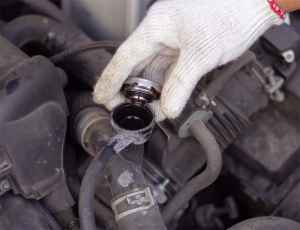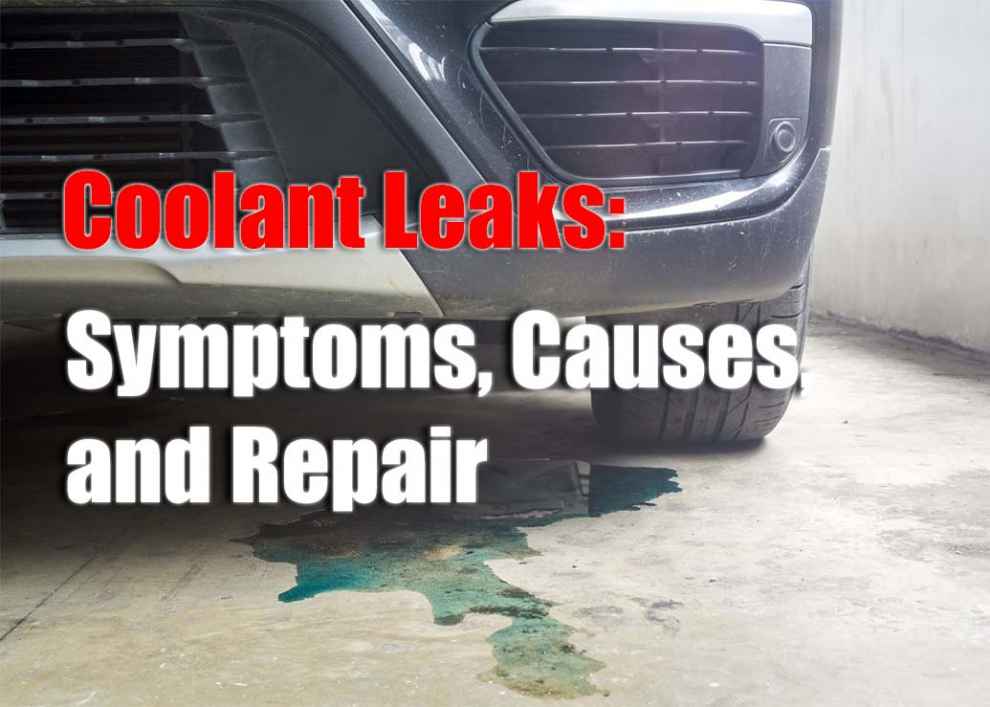Coolant, also known as antifreeze, is an important fluid that helps to regulate the temperature of your vehicle’s engine. It works by circulating through the engine and absorbing heat, which it then dissipates through the radiator. Without proper coolant, your vehicle’s engine can overheat and suffer serious damage.
Coolant leaks can occur for a variety of reasons, and it’s important to address them as soon as possible to prevent further problems. In this article, we’ll cover the symptoms of coolant leaks, the common causes, and how to detect and repair them. We’ll also discuss ways to prevent future coolant leaks.
Symptoms of Coolant Leaks
One of the most common symptoms of a coolant leak is an overheating engine. If the coolant level in your vehicle’s system drops too low, it can’t effectively dissipate heat, causing the engine to overheat. Other symptoms of coolant leaks include:
Leaking coolant: Coolant leaks can be visible as a puddle of fluid under your vehicle or as a drip from the underside of the engine.
Foul-smelling coolant: If the coolant has become contaminated, it may have a sour or rotten smell.
Bubbles in the coolant: If you notice bubbles in the coolant, it could be a sign of a leaking head gasket or a cracked engine block.
Frozen coolant: If the coolant in your vehicle’s system freezes, it can cause serious damage to the engine. This is more likely to occur in cold weather or if the coolant has not been properly mixed.
Causes of Coolant Leaks
There are several common causes of coolant leaks, including:
Damaged hoses or gaskets: Hoses and gaskets can become damaged or worn over time, leading to leaks.
Faulty radiator cap: The radiator cap is responsible for maintaining the proper pressure in the cooling system. If it is faulty, it can cause coolant to leak.
Faulty water pump: The water pump is responsible for circulating the coolant through the engine. If it is faulty, it can cause coolant to leak.
Cracked radiator: The radiator is responsible for dissipating heat from the coolant. If it is cracked, it can cause coolant to leak.
How to Detect Coolant Leaks

Check the coolant level: If the coolant level in your vehicle’s system is low, it could be a sign of a leak. To check the coolant level, locate the coolant reservoir (usually a translucent plastic bottle with markings indicating the full and low levels) and look at the level of the coolant inside. If it is below the minimum level, you may have a leak.
Look for visible signs of leaks: Check the underside of your vehicle for any visible signs of coolant leaks, such as a puddle of fluid or drips. You can also look for any wet or discolored areas around the hoses, gaskets, or radiator.
Listen for hissing or bubbling noises: If you hear a hissing or bubbling noise coming from the engine, it could be a sign of a coolant leak.
Check the condition of the coolant: If the coolant looks dirty or contaminated, it could be a sign of a leak.
How to Repair Coolant Leaks
If you suspect that you have a coolant leak, it’s important to address it as soon as possible to prevent further problems. Here’s how to repair coolant leaks:
Locate the source of the leak: The first step in repairing a coolant leak is to determine the source of the leak. This may require a visual inspection or the use of a pressure tester to help identify any weak points in the system.
Repair or replace the damaged component: Once you have located the source of the leak, you will need to repair or replace the damaged component. This may involve replacing a faulty hose or gasket, or repairing a cracked radiator. Or choose the new one – see here Best Radiator for Jeep.
Refill the system with coolant: Once you have repaired or replaced the damaged component, you will need to refill the system with coolant. Be sure to follow the manufacturer’s recommendations for the proper mixture of coolant and water.
Check for any additional leaks: After you have repaired the initial leak, it’s important to check for any additional leaks to ensure that the problem is fully resolved.
Here is a table outlining symptoms, causes, and solutions for coolant leaks:
| Symptoms | Causes | Solutions |
| Overheating engine | Leaking radiator hose, faulty radiator cap, faulty water pump | Replace radiator hose, replace radiator cap, replace water pump |
| Leaking coolant | Damaged hoses, gaskets, or radiator | Replace damaged hoses or gaskets, repair or replace radiator |
| Foul-smelling coolant | Contaminated coolant | Flush and refill coolant system with fresh coolant |
| Bubbles in the coolant | Leaking head gasket or cracked engine block | Replace head gasket or repair cracked engine block |
| Frozen coolant | Improperly mixed coolant or low coolant level | Refill system with proper mixture of coolant and water, check for additional leaks |
It’s important to address coolant leaks promptly to prevent further damage to your vehicle’s engine. If you are unsure of how to properly diagnose or fix the issue, it is recommended to consult a mechanic or a dealership.
Preventing Future Coolant Leaks
There are several things you can do to prevent future coolant leaks:
Check the coolant level regularly: Regularly checking the coolant level in your vehicle’s system can help you catch leaks early on.
Replace worn or damaged hoses and gaskets: If you notice any worn or damaged hoses or gaskets, be sure to replace them as soon as possible to prevent leaks.
Follow the manufacturer’s maintenance schedule: Following the manufacturer’s recommended maintenance schedule can help to prevent coolant leaks by ensuring that all components are in good working order.
Use a high-quality coolant: Using a high-quality coolant can help to prevent leaks and extend the life of your vehicle’s cooling system.
Conclusion
Coolant leaks can lead to serious problems in your vehicle’s engine if left unaddressed. By understanding the symptoms, common causes, and methods for detecting and repairing coolant leaks, you can keep your vehicle running smoothly and prevent costly damage.

Add Comment